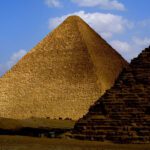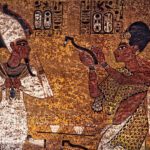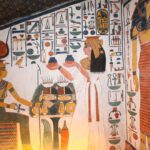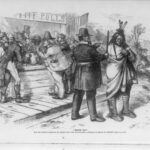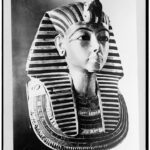 This lesson centers on the intellectual contributions of Ancient Africa, with a focus on the principle of Ma’at as a foundational concept in Ancient Egyptian governance. Ma’at, representing truth, justice, balance, and order, was both a moral and political framework that guided the behavior of rulers and citizens alike. The Pharaoh was seen not only as a political leader but also as the spiritual guardian of Ma’at, responsible for maintaining societal harmony. Through analysis of primary sources like the Papyrus of Ani and secondary texts such as Cheikh Anta Diop’s writings, students examine how Ma’at influenced law, leadership, and social expectations. By comparing Ma’at with modern systems of governance, students gain insight into the lasting legacy of African philosophical and political thought.
This lesson centers on the intellectual contributions of Ancient Africa, with a focus on the principle of Ma’at as a foundational concept in Ancient Egyptian governance. Ma’at, representing truth, justice, balance, and order, was both a moral and political framework that guided the behavior of rulers and citizens alike. The Pharaoh was seen not only as a political leader but also as the spiritual guardian of Ma’at, responsible for maintaining societal harmony. Through analysis of primary sources like the Papyrus of Ani and secondary texts such as Cheikh Anta Diop’s writings, students examine how Ma’at influenced law, leadership, and social expectations. By comparing Ma’at with modern systems of governance, students gain insight into the lasting legacy of African philosophical and political thought.
New Jersey Student Learning Standards:
- 6.2.12.HistoryUP.2.a: Analyze the impact of new intellectual, philosophical, and scientific ideas on how humans viewed themselves and how they viewed their physical and spiritual worlds.
Curriculum
- 3 Sections
- 3 Lessons
- Lifetime
- Stage 11
- Stage 21
- Stage 31
